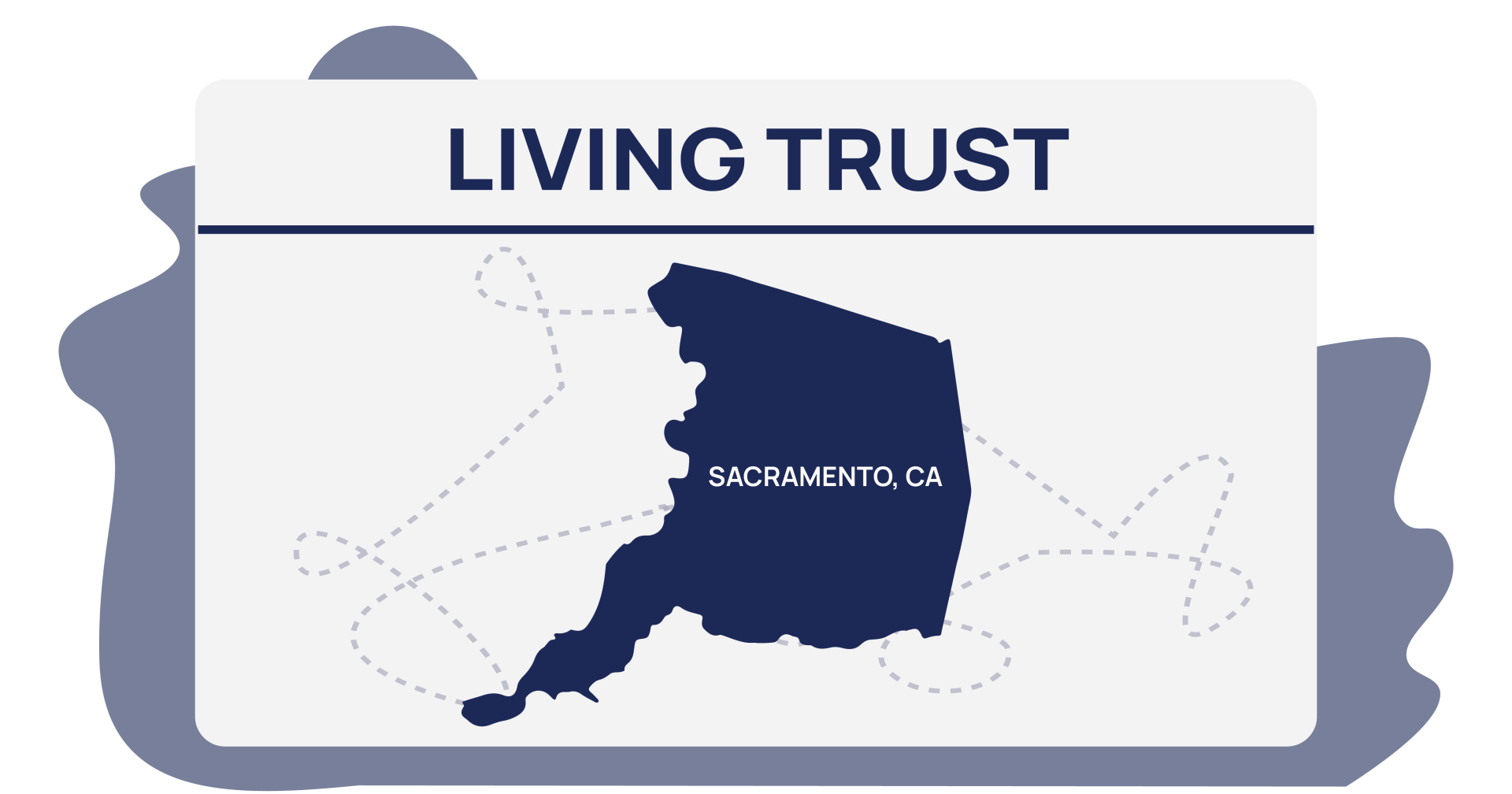
Regardless of the estate value, it’s imperative to have a plan that clearly defines what happens to your property or assets when you pass. This is where a living trust comes in.
When done correctly, it can assure a quick distribution of assets, make your wishes remain private, and help your loved ones avoid unnecessary tax burdens.
Most people who set up a trust in California do so with the hopes of avoiding probate. In addition, a living trust can be used to allow someone to have complete control of the property, handle property management for a beneficiary under 18, and name all the other heirs.
Living Trusts
A living trust is a critical document when an estate is involved. So, before you try to write one yourself, you must be prepared and gather the necessary information. Below are four things you need to consider before creating a living trust:
- Make a comprehensive list of your assets that includes everything you own
- Proper paperwork, including life insurance policies, stock certificates, titles, deeds, etc.
- Choose a trustee and beneficiaries
- If you have minor children, you will have to choose a guardian too
Steps for Setting Up a Living Trust
Many older couples and even singles in Sacramento create a living trust themselves. This probate-avoidance technique helps them keep their assets out of probate. However, you need to hire an estate planning attorney to ensure it’s done correctly for the best results.
Here are the essential steps that should be taken when setting up a living trust:
1. Choose Between an Individual and Shared Trust: Decide on Which One is Right for You
Domestic partners and married couples can choose either an individual or a shared living trust. The latter could be the right choice for you if your partner/spouse and you own most of the property or assets together.
2. Consider What to Put in Your Living Trust
When creating a living trust, you should list the most valuable and vital property items. This way, you will prevent them from going through probate. Listed below are things to consider putting in your trust:
- Real estate (your house, condo, or land)
- Small business interests – this includes but is not limited to closely held corporations, partnerships, and limited liability companies
- Retirement accounts
- Bank accounts
- Cars and other vehicles
- A life insurance policy
- Securities
- Cash
3. Name All the Beneficiaries in Your Trust
When naming beneficiaries, you should have a clear idea of the individuals who will inherit your property. These are usually family members and relatives. Some people also choose charities or friends to inherit their trust property. In addition to making first choices, you should also pick alternate beneficiaries.
4. Select a Successor Trustee
You need to choose someone who will be serving as a trustee. That person will be responsible for distributing your property and assets to the beneficiaries after your death. When selecting a trustee, most people pick their grown daughter or son.
However, it isn’t uncommon for people to select close friends or relatives to serve as trustees.
Also, it is not uncommon for beneficiaries to serve as successor trustees in Sacramento, Rocklin, Roseville, and other cities in California, and it is perfectly legal. Once you’ve decided on the trustee(s), you should discuss this with them before finalizing your trust.
You should also know whether or not that person will take their responsibility as a trustee seriously.
5. Pick Someone Who Will Be Managing the Property/Assets for Young Inheritors
This involves choosing someone who will manage the trust property before young heirs turn of legal age. It is crucial to have the right person in place if some young adults or children inherit your property or assets.
Whatever they are entitled to, such as a house, life insurance policy, or retirement account— there must be an adult who will manage it for them.
Giving authority to that person over the youngster’s property can be done in a few ways in the State of California. In most cases, the truster makes them either trustee or property guardians.
That person can also become a property custodian and thus be able to manage the property for young beneficiaries. This can be done through the UTMA (Uniform Transfers to Minors Act) account.
6. Start Preparing Your Trust Documents
If you have previous experience and good information, you can write a Declaration of Trust, i.e., a living trust document on your own. Different online tools and programs can help you create a will, living trust, customized estate plan, and the like.
However, it’s best to hire an attorney to establish your trust for you to help your loved ones avoid any legal battles once you are gone.
Aside from offering background information, an estate planning lawyer can complete instructions for you and gather all the trust forms required. Depending on your situation and where you live, these forms may include:
- Basic Shared Living Trust
- Basic Living Trust for Single Person
- Certification of California Living Trust
- Revocation of Living Trust
- Affidavit of Successor Trustee, etc.
- Assignment of proper
A lawyer can also help draw up a living trust that meets any specific needs. Additionally, an estate planning lawyer can help you create property management, transfer assets to your living trust, decide what arrangement is most suitable for your family, and so on.
7. Sign Your Living Trust Document
Once you have created your trust document, you need to get it notarized by a notary in Sacramento, Rocklin, or Roseville. The same is true for your spouse or domestic partner’s signature if you set up a living trust together. This involves signing a trust document in the presence of a commissioned notary.
8. Transfer Trust Property Title to Trustee
If you want a living trust to take effect, you need to transfer the property title first. Remember that you will be required to sign a deed that transfers the trust property/assets. This allows the trustee to start holding real estate or trust assets in their name. Despite being a vital step, some people do not take it for some reason.
9. Keep Your Living Trust Document in a Safe Place
It is not necessary to file this paper with a government agency or court in California. Just store it safely and ensure the trustee will have access when needed.
Conclusion
Setting up a living trust can be challenging, and this is why you need to hire an attorney to ensure your living trust meets your own needs. Contact the Filippi Law Firm, P.C. for a free consultation and find out how we can help you prepare you for the future.
Filippi Law Firm, P.C., provides legal services in estate planning, probate, trust administration, trust litigation, and personal bankruptcy in the greater Sacramento area, with a focus in Rocklin, Roseville, Lincoln, and Granite Bay. Give us a call at (916) 333-7910 or fill out the contact form to get in touch with our office. Consultations are free, and they can be done over the phone, via Zoom, or in person at our office in Rocklin. Prepare for your future and work with the best estate planning attorneys today.

 By: James Filippi
By: James Filippi